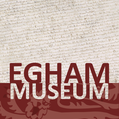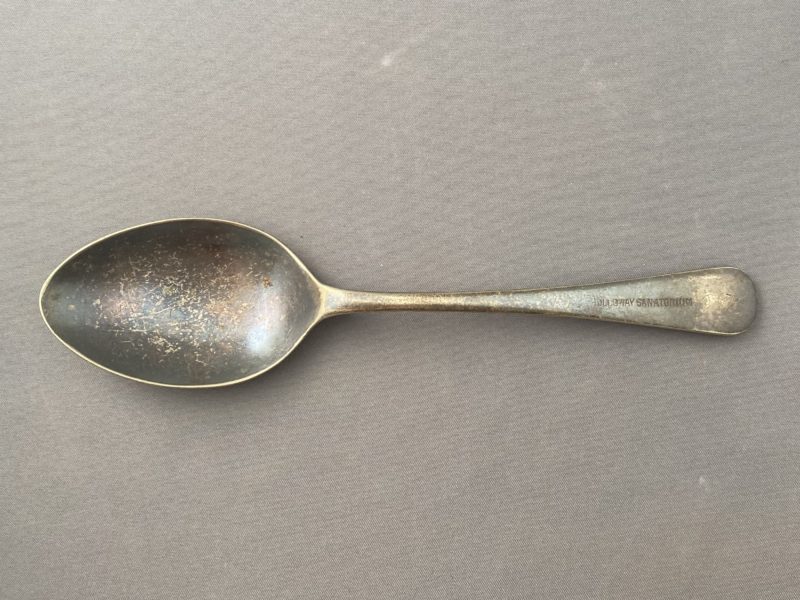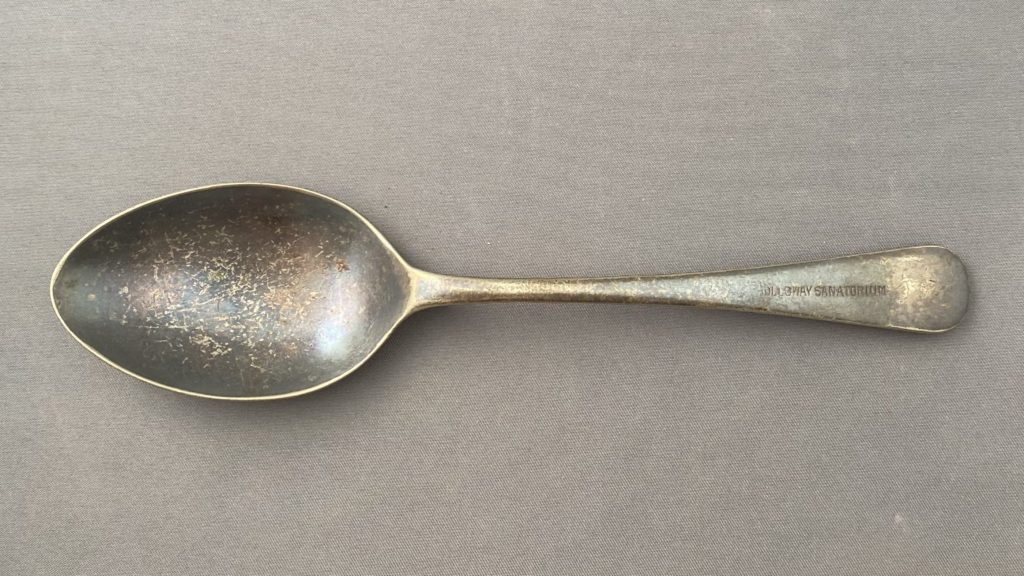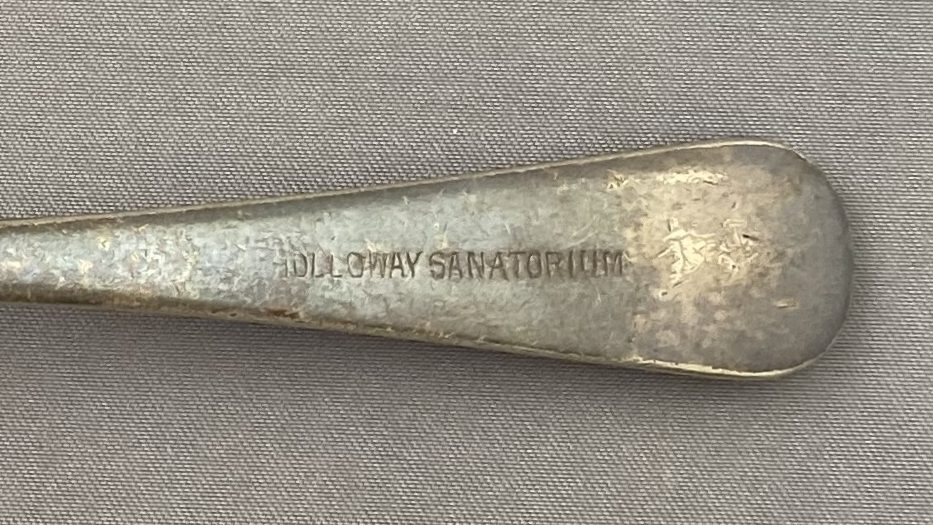Dessert spoon with Holloway Sanatorium
Article by Cara Ross
Another item in our collection originating from the sanatorium is this simple dessert spoon. This item is thought to originally made up part of the sanatorium’s dinner service, which would have been used by the patients at the daily breakfast, lunch, tea and supper services. These regularly scheduled meal times were mandatory for most patients, with the exceptions of those on bed-rest, or those too ill to join the main body of patients. Another item in our collection, a diet sheet dating from approximately the 1950s shows that this was continued on up to a century after its opening (JW18).
This provides a key component of the system of treatment used at the sanatorium; occupational therapy. Occupational therapy, which is still used today, is the use of everyday, normal activities along with socialisation, performed with the express purpose of treating mental illness. This also included a range of sports activities, with the original building design including a swimming pool, tennis courts, and many more. Crossland’s original design did not include a dining hall, an issue that was later rectified in a redesign, showing that as the construction moved forward changes were continuously made to optimise the occupational experience. Ultimately, through this, doctors hoped to encourage appropriate behaviour, through exposure to everyday tasks.
The core ideals of occupational therapy are thought to have a long history, being traced all the way back to the Romans, and the doctor Asclepiades of Bithynia (124-40 BCE), who practised the use of calming baths, massages, exercise and music in the treatment of his patients. However, in the 18th- century, occupational therapy as an official form of treatment was still fairly new, and Holloway Sanatorium was at the forefront of its popularisation in the United Kingdom. The increased focus on social reform was undoubtedly an impact, with the famous quote from Octavia Hill; “give a man a fish and he will eat for a day, teach a man to fish and he will eat for a lifetime” reigning particularly true with the Victorian ideal of individualism and focus on the self- improvement with the aim of being self sufficient. The work of Octavia Hill went on to influence many, including Dr Elizabeth Casson (b.1881), who being the first woman to achieve a medical degree from the University of Bristol, was seen as one of the pioneers of occupational therapy in England. Ultimately, the development of this field would see great advancements in the late 18th and early 19th centuries, however the adoption of this as the main form of treatment at Holloway Sanatorium marked a distinct difference in the way mental patients were treated within medical institutions.
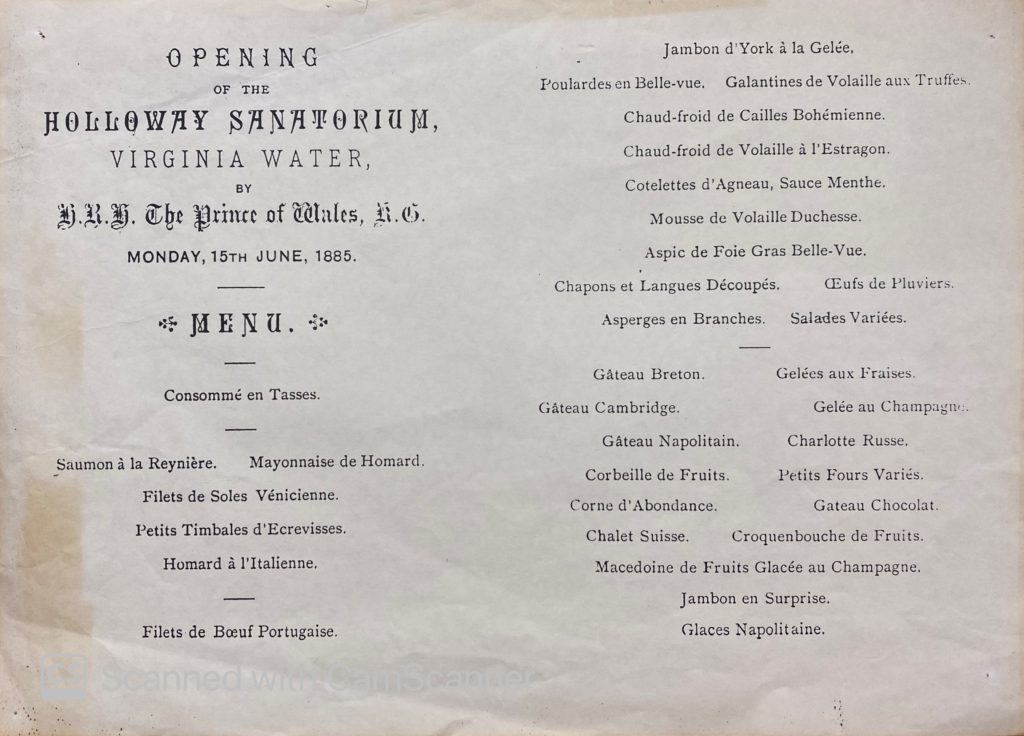
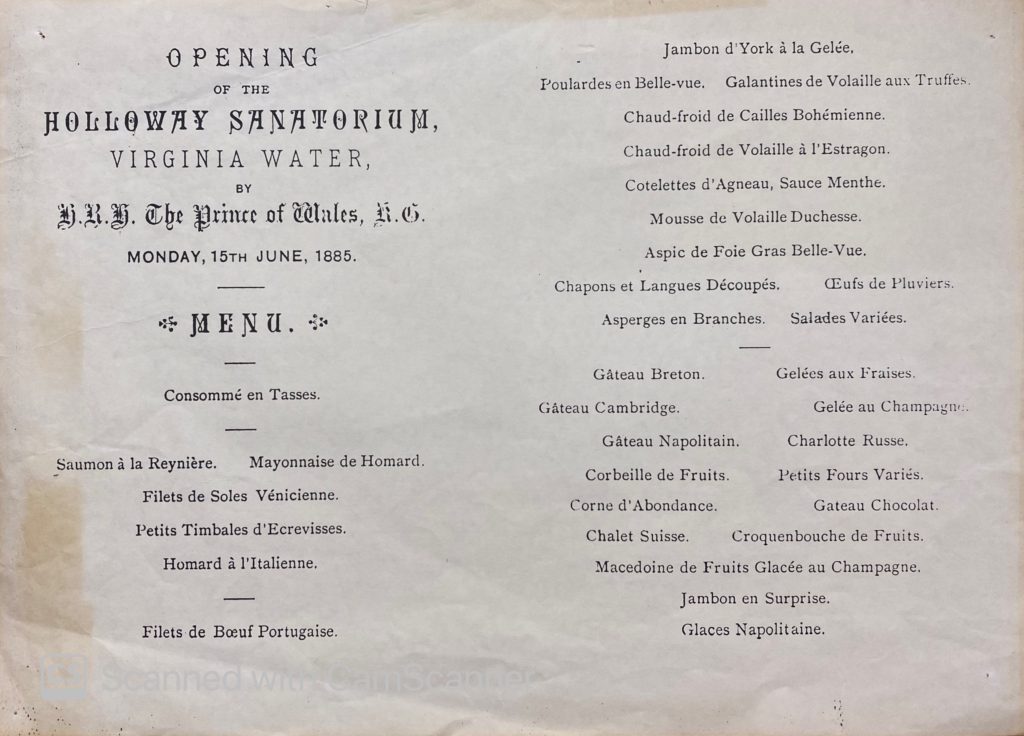
Menu of lunch at opening of Holloway Sanatorium June 15 1885 with a range of French foods (JW172) 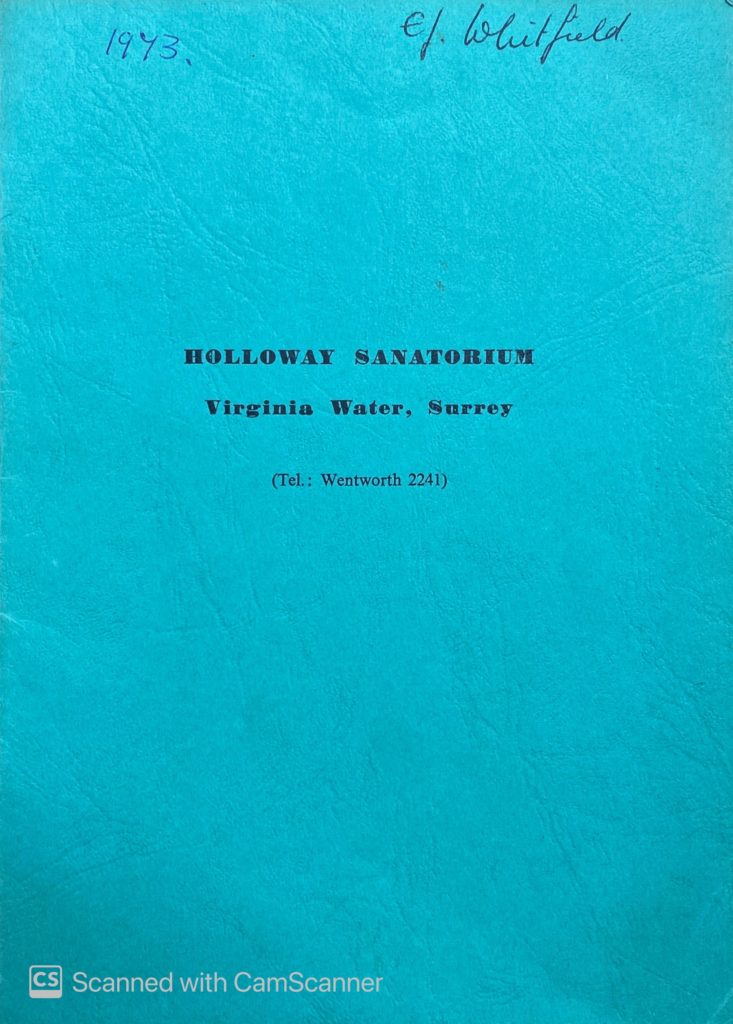
Information booklet 1973
Facilities, social clubs, meal times, map, practical day-to-day running of the facility (JW22)
Information booklet 1973
Facilities, social clubs, meal times, map, practical day-to-day running of the facility (JW22)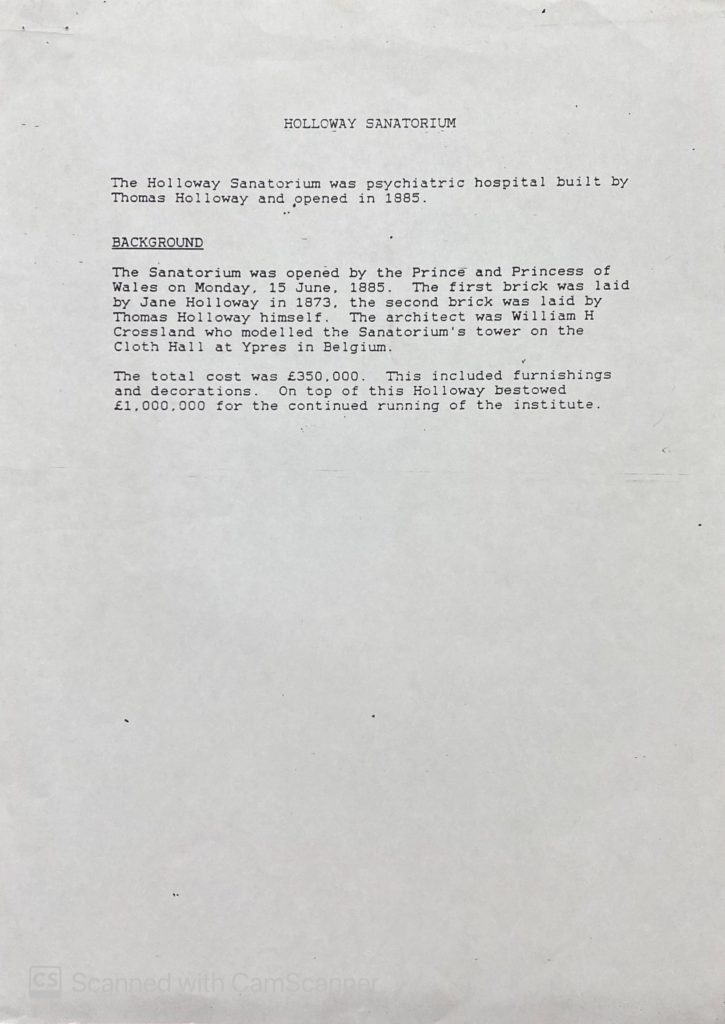
The building of Holloway Sanatorium-
Price breakdown, building history (JW110)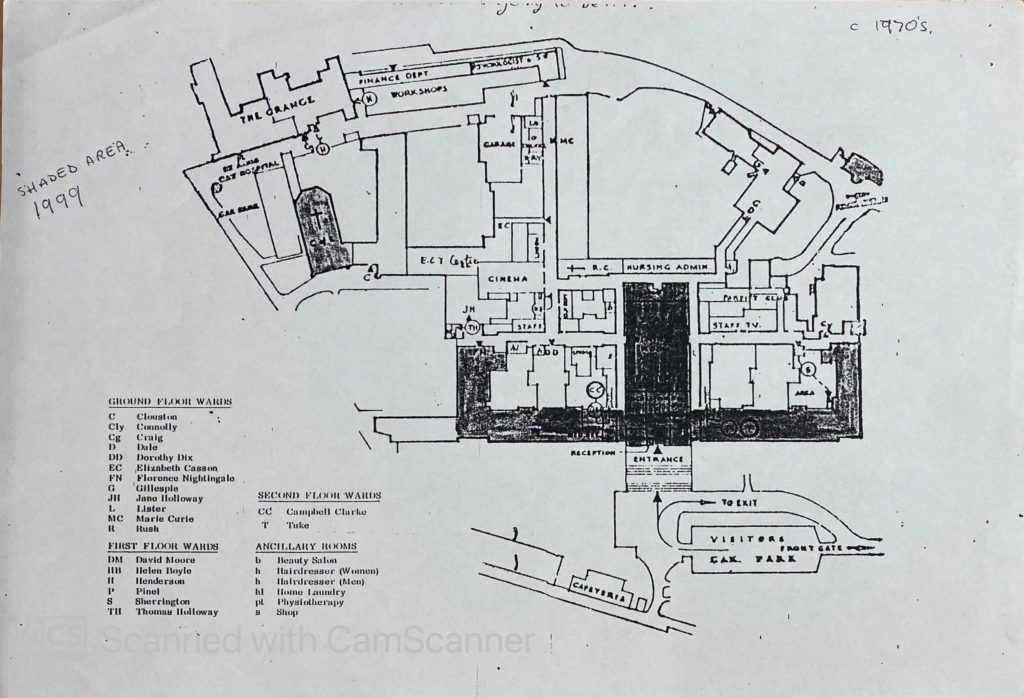
The building of Holloway Sanatorium-
Price breakdown, building history (JW110)
The building of Holloway Sanatorium-
Price breakdown, building history (JW110)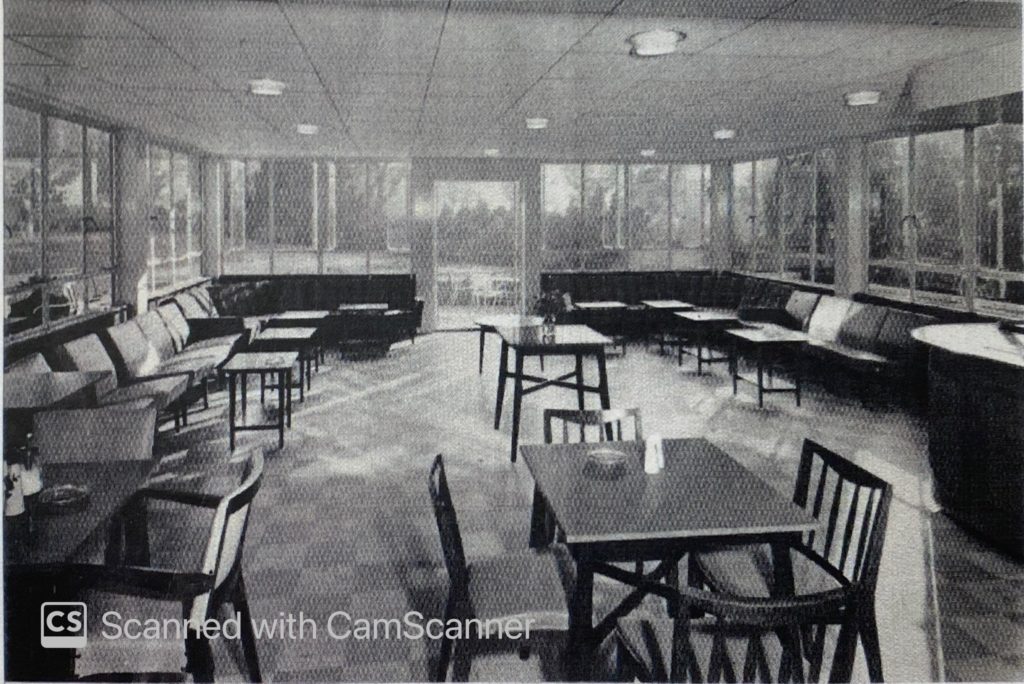
Leaflet- ‘The Ormond Cafe’ by the friends of Holloway Sanatorium (JW305) 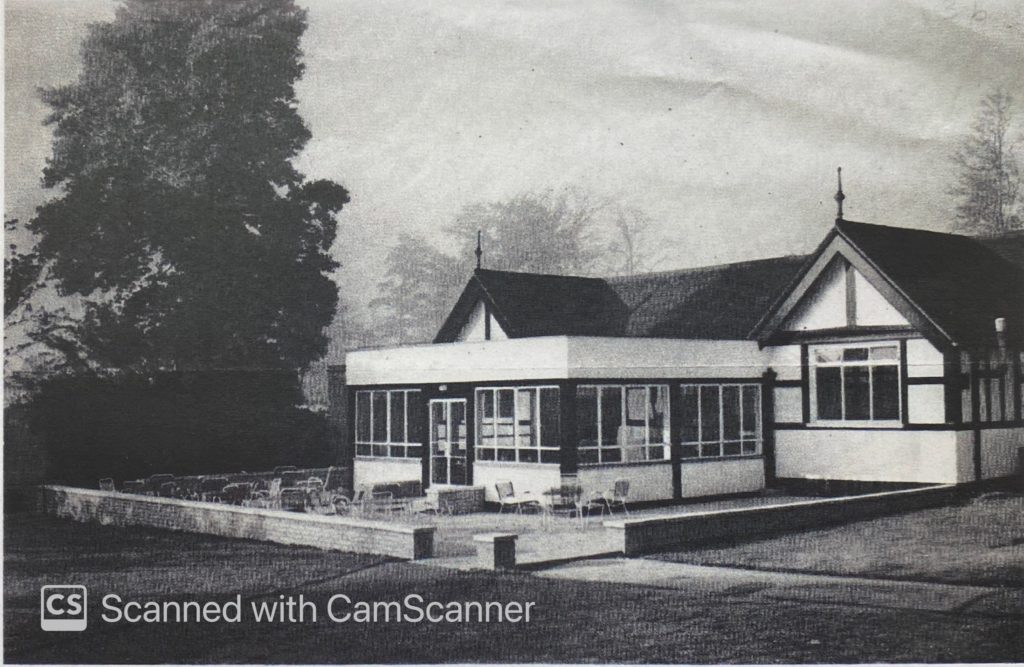
Leaflet- ‘The Ormond Cafe’ by the friends of Holloway Sanatorium (JW305)
